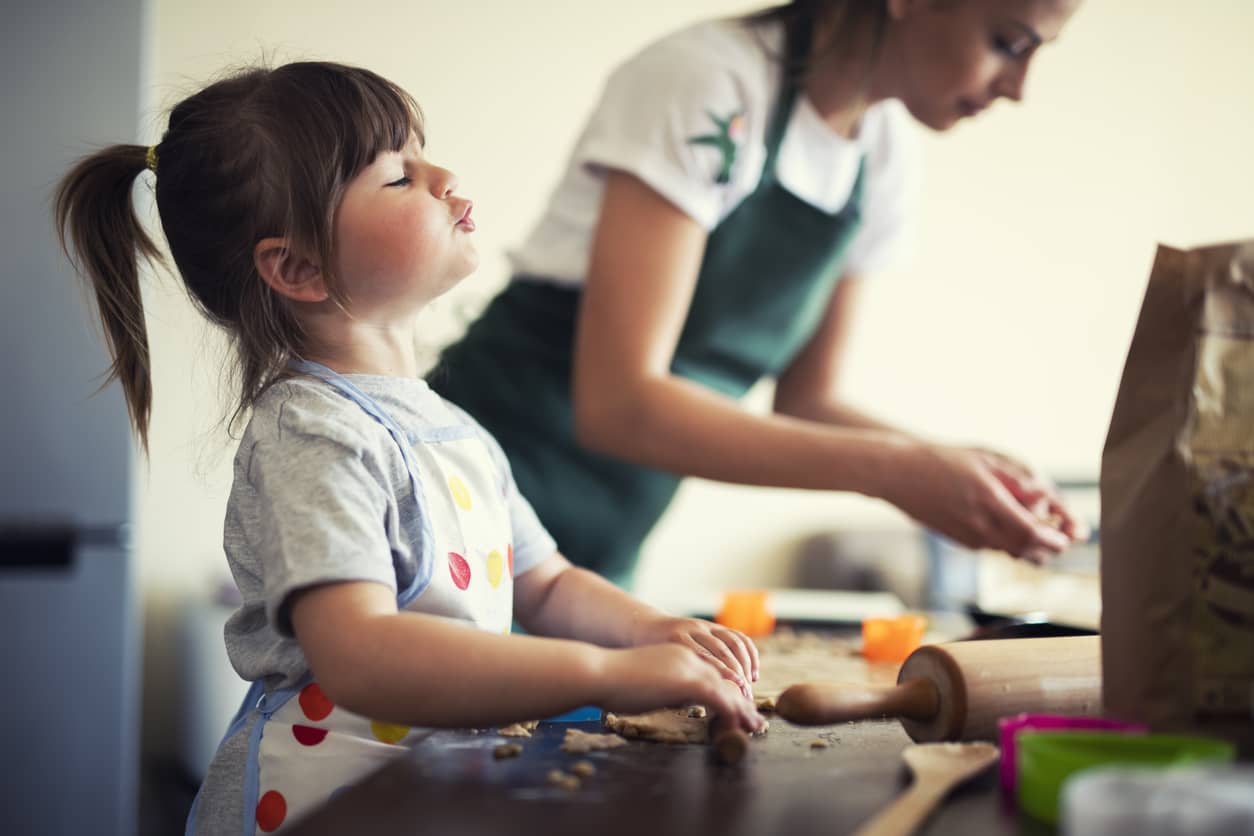Every parent of a toddler is familiar with the incessant "whys" that litter each day. At first, they are endearing and cute. Parents take great delight in hearing that sweet voice and seeing the expressive, curious face of their child. However, after the first hundred times or so, or on a particularly stressful or hectic occasion, the question often begins to irritate parents. Fortunately, this stage passes somewhat quickly, as the child's language development expands to include more and more words. And then, before you know it—the teenage years greet you!
Estimated reading time: 4 minutes

Why Is Empathy Important in Parenting?
The stages of development in children can be intense when they come but often unfold into new cycles naturally unless parents over- or under-react. Each step is an opportunity to support and help a child grow in healthy development. And every parent needs empathy. In today's culture, diversity and clashing opinions demand understanding and increased tolerance. Being armed with knowledge and empathetic parenting can go a long way in building confidence for you and your children.
Stressed parents and a toddler stuck on why is a relatively manageable cycle. However, unlike toddlers who ask "why" as they explore the world from a two-year-old perspective, there is a parent trap that often goes unrecognized. For toddlers, this why the developmental phase passes quickly; however, parents seem to get stuck. Parents ask why of their children and teens even though they rarely get a satisfactory answer. It goes something like this:
- "Why do you throw your food on the floor?"
- "Why did you hit your sister?"
- "Why won't you eat your lunch?"
- "Why don't you pick up your bedroom?"
- "Why can't you be more like your brother?"
- "Why do I always have to remind you to do your homework?"
- "Why can't you listen just once?"
Sound familiar? Imagine what a child feels at the receiving end of this battery of questions hitting them like water out of a fire hose. And guess what—they probably don't know why! Asking why is automatic and lacks empathy because what parents are actually communicating is, "Why can't you be different?" With this message, a child doesn't feel understood; they feel judged. The parent's disapproval is painful, and the child feels unaccepted for who they are "being" in that moment. What if we could transform that interaction by introducing more empathy?
Deep Dive: "How to Teach Empathy to Children and Create Understanding."
Parent Trap Solution: Look at Life from Your Child's Perspective to Gain Empathy
Of course, there are many times that we really do just want to understand our child's behavior. However, if the behavior seems irrational to us, it probably is—which means that the toddler, child, or teen (or spouse!) isn't in the rational part of their brain. No question, even a simple one, will produce the logical answer you want. The logical part of the brain is offline. And empathy will help the child feel safe and understood.
The highest need of a developing brain is safety. And this is why empathy is important in child development. To develop naturally to their fullest potential, children (and teens) require a safe haven for experiencing and experimenting in the world. Through this exploration, they discover who they are; however, if they only seek to protect themselves from criticism, they may choose to give up who they are for their parent's approval.
Related reading: "How to Build Healthy Emotional Development in Children"
Let's take a situation that occasionally comes up with a teething toddler on a playdate. The parent has the best of intentions, thinking that playing with other children is great socialization as well as being an opportunity to help distract the restless toddler. And an added bonus: mom or dad gets to socialize with adults! But a teething toddler is often fussy, whiny, and sometimes inconsolable due to the discomfort. Sometimes, so much so that the child may bite the nearest thing in sight, even if it happens to be a playmate. Guess what comes out of the parent's mouth? Yep. "Why did you bite your friend?" A very young child has no clue why they just bit a friend, especially since very little of the prefrontal cortex—the logical part of the mind—is even developed in a toddler. Understanding the brain development of a young child can ease the angst of parenting. To understand is to feel empathy. It's not time for toddler discipline; it's time for understanding and empathy. If the toddler could respond rationally, they might say something like this:
A very young child has no clue why they just bit a friend, especially since very little of the prefrontal cortex—the logical part of the mind—is even developed in a toddler. Understanding the brain development of a young child can ease the angst of parenting. To understand is to feel empathy. It's not time for toddler discipline; it's time for understanding and empathy. If the toddler could respond rationally, they might say something like this:
"My mouth is full of immense tension due to the new teeth relentlessly pushing through my gums. They cause me tremendous discomfort and interrupt my sleep with jabs of pain, which has made me more tired and cranky than usual. It was impossible for me to act kindly when that boy stole my toy due to my intense pain. And I don't yet have the brain circuitry or the skills to ask nicely for what I want. Heck, I'm just now beginning to learn how to talk! And I'm two! I am the center of the universe and have not yet grasped the meaning of sharing."
We forget that a young child—or even a growing teen, for that matter—is interacting with life from a very different perspective than an adult.
So what should we as parents do instead of asking why?
Listen and empathize. Just share the experience. From that understanding, we can better support our children and help them to be successful in different situations in the future. When they feel understood by us, they will feel connected to us and comforted by our response.
Empathetic Parenting = Peaceful Parenting!
Often, when our child hurts another child, as in the above biting scenario, we as parents are mortified. Our first response—or reaction—can depend heavily on just how upset we are. We often attempt to patch things up quickly by comforting the hurt child, scolding ours, and apologizing to the other parent. However, no matter what happens, the biggest key is to stay calm ourselves and, from that centered place, discern what is needed and how we might be responsive to all parties. We can't be responsive if we're in a knee-jerk reaction.

For now, I'm only going to address our response to our own child. So in the above scenario, instead of asking, "Why did you bite your friend?" a more effective and empathetic response to our child's behavior might look and sound like this:
"Your teeth are bothering you, aren't they?
You must be really uncomfortable."
[Expressing empathy for the child's experience.]
"And it hurts your friend when you bite him."
[Cultivating awareness of another child's feelings while building an understanding of her impact on others.]
"Can you show your friend some kindness?"
(Have your toddler briefly show comfort to the hurt child.)
[Giving opportunity to repair the relationship and practice empathy.]
"Here's a cool teething ring to soothe you."
[Addressing the problem by soothing her aching gums.]
"Let's go home for you to get some extra rest."
[Kindly revoking the privilege of playing with friends while also meeting the underlying need.]
Total estimated time (for any of you who may be saying to yourself, "I don't have time to do all this!"): 4-5 minutes max! Empathy works for toddlers or teens alike! Empathy speeds up the process because strong emotion is diffused.
Deep dive into empathy: "The Three Kinds of Empathy: Emotional, Cognitive, Compassionate."
Yep, responding instead of reacting does take self-control and maturity. So if you're losing your patience: it's time for you to take a break, self-calm, and get in touch with how much you love your child. Next time you want to ask why, bite your tongue and take a step back.
Remember, one of the most important actions you can take in parenting is to make sure your children feel loved and understood. This is the foundation of peaceful parenting.
For more parenting tips or information about parenting classes, sign up for our HeartMail newsletter.









